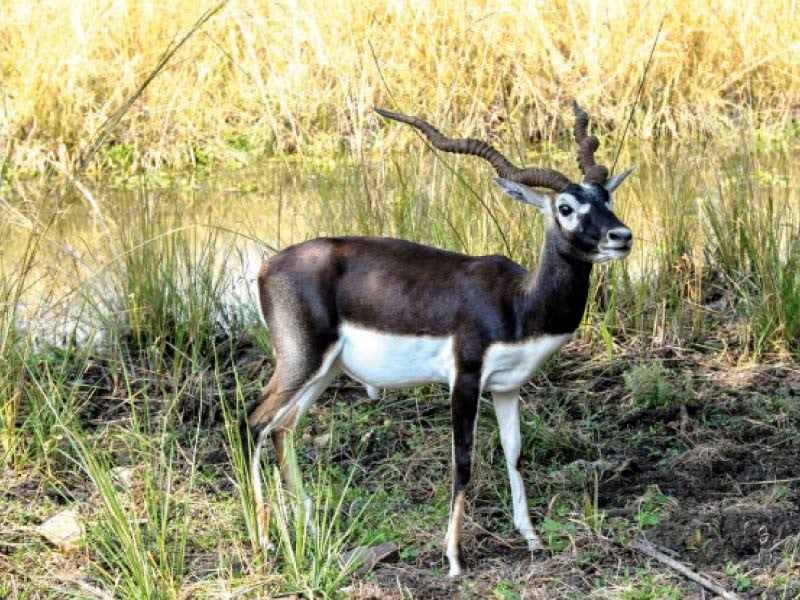
Wildlife is confronted with serious challenges in Pakistan which need to be addressed through joint efforts.
The population of various species is dwindling which can be restored through the engagement of relevant government agencies, civil society organizations, and local communities.
This was stated by speakers during the World Wildlife Conservation Day 2022 ceremony observed at Keti Bunder, Thatta, a port town on Indus Delta.
The theme of the day for this year is ‘Recovering Key Species for Ecosystem Restoration.’
This calls for taking practical steps to contribute towards nature conservation and restoration of wildlife in their natural habitat.
Keti Bundar Assistant Commissioner Irfan Nizamani said that Indus Delta is facing several challenges of freshwater supply, seawater intrusion, and climate change. As a result, species of wild animals, particularly marine and amphibian stocks are decreasing in the coastal belt.
He said that the government is working for the provision of alternative livelihood opportunities to the fisher and farmer communities in the Indus delta.
He called for concerted efforts to promote conservation and protection of wildlife and appreciated the efforts of local communities in increasing the forest cover through regular plantation activities.
WWF-Pakistan Manager Marine Programme Ghazi Salahuddin shared that habitat loss, environmental degradation, illegal trade and climate change are among the most alarming challenges faced by wildlife in Pakistan.
The observed decline in species populations is also inextricably linked to the state of ecosystems that sustain them.
Destruction of these ecosystems represents a risk not just to resident plants and wildlife, but to humans as well. Hence, WWF-Pakistan, in coordination with relevant organizations, is implementing various initiatives to address these challenges coupled with the revival of diverse ecosystems across the country.
He further elaborated that as the local communities who are the custodians of wildlife, they must develop their interest and take steps for protection of wild species.
WWF-Pakistan Manager Saeed Ul Islam shared that the country experienced unprecedented monsoon rains and floods indicate that our country is highly vulnerable to climate change induced disasters.
He informed that along with other threats, the climate change is putting the people, biodiversity and fragile ecosystems including natural resources at a high risk.
He emphasized that Pakistan need to address the challenge of climate change through joint actions at local, national and global level.
“This can also help save the magnificent biodiversity most importantly the snow and common leopards, Indus dolphin, white-backed and long-billed vultures, Arabian Sea humpback whale among others in Pakistan which are facing multiple threats,” he added.


1731570357-0/elon-musk-(1)1731570357-0-165x106.webp)
-(1)1717678110-0/Kendrick-(1)-(1)1717678110-0-165x106.webp)














COMMENTS
Comments are moderated and generally will be posted if they are on-topic and not abusive.
For more information, please see our Comments FAQ